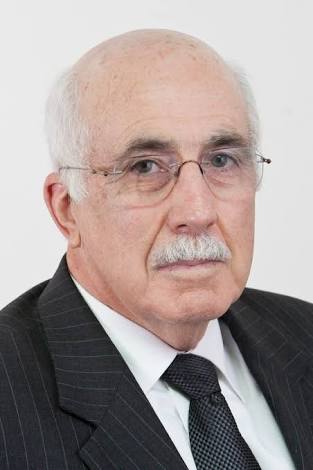|
Media and Communications Officer, Erin Meeking, met with BestHooper’s Ian Pitt QC this summer to discuss his career as a planning and environmental lawyer, the future of the practice, and his advice for students of environmental law.  In practice since 1966, Ian is pre-eminent as an advocate in town planning, land compensation and related jurisdictions. He haspractised principally in the planning jurisdiction of the Victorian Civil and Administrative Tribunal, before rezoning and environment effects Panels and the Supreme Court of Victoria. In 2016, Ian was again recognised as one of the preeminent leading Planning and Environment lawyers in Melbourne by Doyle's Guide, and ranked amongst the Best Lawyers in Australia for 2017. He has held positions as consultant solicitor to the Ministry of Planning and Environment, Local Government arbitrator, part-time Chairman of the Land Valuation Board of Review, lecturer, a seminar speaker and by taking silk in 2001. Launching straight into it, could you please tell us a little about your career and your current role at BestHooper? I have been at the firm now for 50 years, making a partner in 1972 and retiring as a senior partner in 2006. A lot has changed in that time, 25 years ago I was the entirety of the town planning practice. The firm now has 13 people who practice in whole or in part in that jurisdiction. My position at the firm now is that of Special Counsel. What initially drew you to a career as a planning and environmental lawyer? When I completed my articles the Firm used to act for the Melbourne Metropolitan Board of Works which, at that time, was the metropolitan planning authority as well as an authority with responsibilities for sewerage, drainage, water supply and main roads. Through this, I was able to work in compulsory acquisition as well as planning and a range of other matters. I found I enjoyed the practice of compulsory acquisition and town planning. Around 25 years ago, and after 25 years in practice, I decided that I would only practice in those jurisdictions and related jurisdictions. What do believe to be the greatest challenge facing the practice of planning and environmental law? When the Board of Works was the metropolitan planning authority it was able to easily integrate all aspects of development as it was the major infrastructure supplier and was able to coordinate those matters. It also acted above local municipal political considerations. Overall, I think that this metropolitan perspective provided a much greater overview than local parochial interests and its loss is a significant loss. The change means that a lot of decisions that should be made on applications and on planning scheme amendments are being made either by panels or by the tribunal when really they shouldn’t have to progress that far.It means there is a lot more delay, and a lot more expense. What do you believe is the future of the practice of planning and environmental law? I think as long as we’re providing additional accommodation and infrastructure the jurisdiction will always be there. I cannot see a situation where there is not going to be a system of third party input, nor can I see decisions only being decided by ministerial or council fiat. Do you think the environment is being adequately considered by the private sector? No. I do not think that at governmental level, or as part of planning in general, that there’s an adequate focus on environmental issues including sustainability and the effects of climate change. I don’t think they are given the weighting that they should be given. I guess it comes down to economics. You can provide for all these things, you can provide for better internal amenity, and you can provide for better public amenity, but it all comes at a cost. Ultimately the community has to decide where the line is to be drawn. At the moment especially a serious problem is housing affordability which is a very serious issue. Mandating better quality development will come at a cost. What comments do you have for those students seeking to pursue a career in planning and environment law? I think this is a very interesting area of the law, and I don’t think it is going away any time soon. With one exception, which happens to be family law, the practice deals largely with what is going to happen, rather than simply assessing the consequences of what has already happened. There is also the opportunity to propose better uses and better development. For further information or to contact Ian Pitt QC, see www.besthooper.com.au/ian-pitt.
0 Comments
Your comment will be posted after it is approved.
Leave a Reply. |
About this pageSee this page for VELSN member submissions, interviews with leading environmental law academics, legal practitioners and commentators, and developments in environmental law. Archives
March 2021
Categories |
 RSS Feed
RSS Feed
